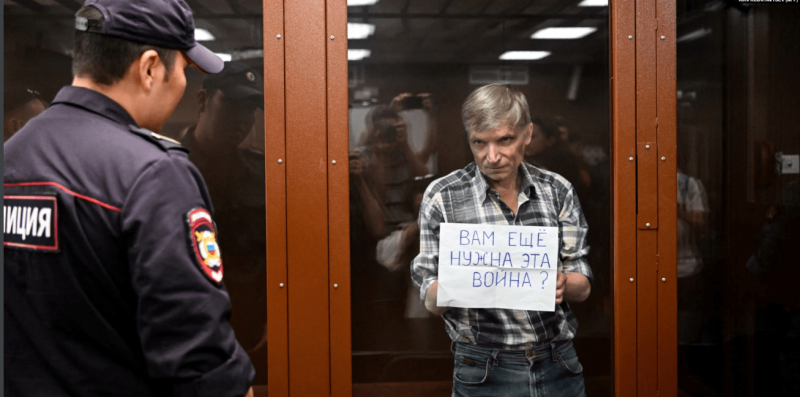
Russian troops hit ammunition depots, Ukrainian forces in Donetsk A Moscow court sentenced a municipal council member to seven years in prison for his anti-war remarks in Ukraine.
The precedent-setting sentence raises the stakes for Kremlin critics in Russia who oppose Moscow's invasion of its former Soviet neighbour. Alexei Gorinov was found guilty of spreading "knowingly false information" about the Russian military, a crime punishable by up to 15 years in prison under a law passed by the Russian parliament just a week after the Kremlin sent troops into Ukraine. a legal aid organisation focused on free speech cases, the 60-year-old member of Moscow's Krasnoselsky municipal council is the first person sentenced to prison for a conviction on that charge.
The two previous convictions resulted in a fine and a suspended sentence. Gorinov, who was detained in April, is the first elected official to face charges under the wartime legislation.
In March, Gorinov spoke out against Russia's military actions in Ukraine at a meeting of the Moscow municipal council. In a YouTube video, he expresses reservations about holding a planned children's art competition in his district while "every day children are dying" in Ukraine.
Photographs from a Friday court hearing published by Russian media showed Gorinov standing behind a glass-walled defendant's dock, holding a sign that read, "Do you still need this war?" A bailiff attempted to obscure the sign with his hands.
When Russian President Vladimir Putin ordered the invasion of Ukraine on February 24, a massive wave of outrage and antiwar sentiment swept the country. Every day, thousands of people protested on the streets of Moscow and St. Petersburg, and hundreds of thousands signed online petitions condemning the attack.
The Kremlin insisted that what it called a "special military operation" in Ukraine had widespread public support, and it moved quickly to silence any criticism. Thousands of protesters were arrested, and dozens of critical media outlets were forced to close their doors. Individuals who publicly opposed the invasion or accused Russian troops of committing atrocities in Ukraine were singled out under the new legislation, which prohibited the dissemination of "false information" about the invasion as well as disparaging the military. Net Freedoms had counted 68 criminal cases involving false information charges and at least 2,000 misdemeanour cases for alleged disparagement of the Russian military as of Friday.